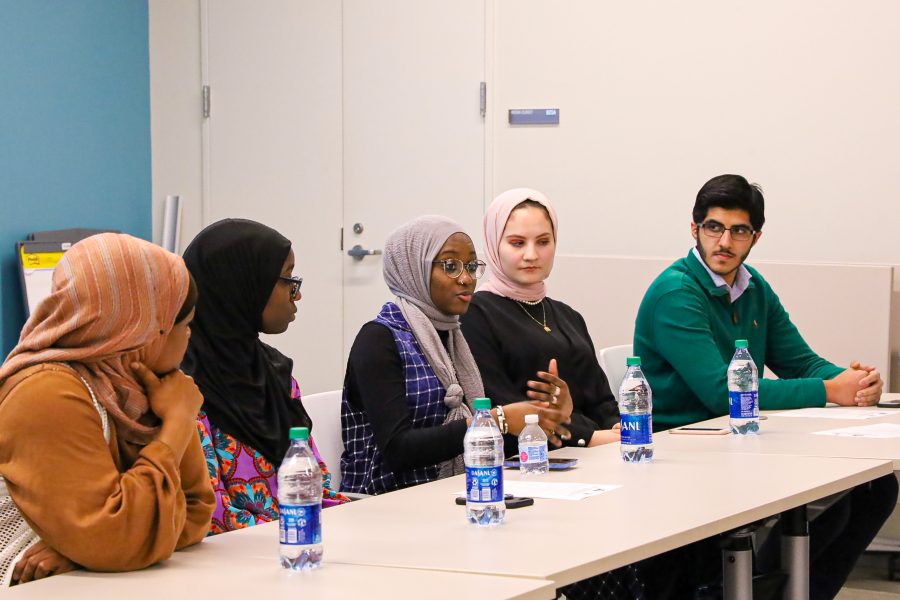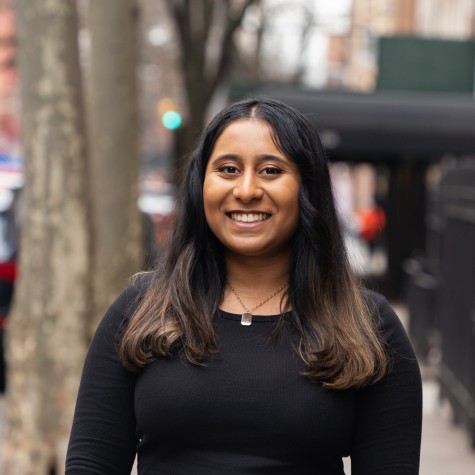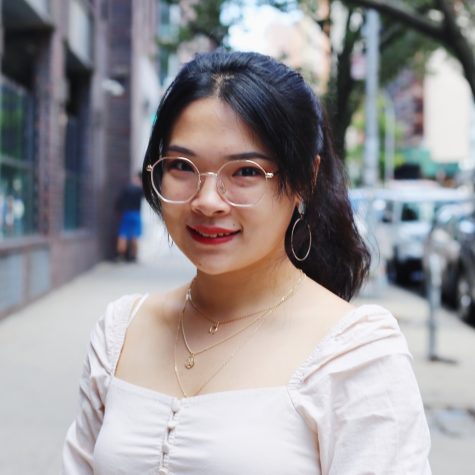When Nawal Ali lived in Kenya, she did not feel out of place as a practicing Muslim. An NYU Abu Dhabi student, Ali is studying abroad in New York this semester. Here, she said her identities as a black and Muslim woman are made out to be conflicting by others.
“Today when I look at myself in the mirror, I see a black Muslim woman,” Ali said at an event for black and Shia Muslims on Monday. “But five years ago, I would have seen just a Muslim woman.”
Titled “Making the Marginalized Mainstream: Being the Minority within a Minority,” the event was hosted by the Muslim Students Association, the Black Muslim Initiative and the Islamic Center. Students there took advantage of the open mic forum to reflect on their identities and the experience of being a part of a marginalized group. They was followed by a panel of students and chaplains who spoke to an audience of about 50 people.
One of the main issues black Muslims face is being questioned based on their appearance, Ali said at the event. Ali said once she started studying in Singapore and Abu Dhabi, she began to reevaluate her identity.
“I became the representative of Islam [in Singapore] because I wore a hijab,” Ali said. “I was afraid of coming here. I didn’t want to apply to uni in the USA because Trump was getting elected.”
While trying to figure out their identities from within, students said they experienced tension based on their physical appearance.
“We face assumptions of being called a convert, by both white and other Muslim students,” CAS first-year Oumarsodo Baro told WSN.
For CAS first-year Habi Sillah, this means needing to assert her identity to others.
“Having to defend yourself of being a Muslim, when in general, you should be able to be a Muslim without anyone questioning you,” Sillah said in an interview with WSN.
Shia Muslims, a minority within Islam alongside their majority counterparts Sunni Muslims, have dealt with discrimination for a long time. Sunni Muslims are the majority in Egypt, Jordan and Saudi Arabia while Iran and Iraq have majority Shia populations.
“There are not many differences between the two practices, and is not as significant or sensationalized as portrayed in the media,” CAS senior and Vice President of MSA Melanie Mohsen told WSN. “The origins of the split began politically a long time ago.”
Moderating the event was Islamic Center Chaplain Imam Khalid Latif, who asked panelists when they first felt marginalized by a certain aspect of their identity.
“Not being able to play with other children,” said Stern sophomore Kumail Raza, recounting a memory in which his Sunni friend’s parents did not let the two children play together. “It hurts when you feel treated differently within your own community.”
The need for access to safe spaces for conversations and prayers resonated with both groups.
“Having a black Muslim space is important to me in order to feel validated,” CAS senior Aesetou Hydara said. “A space to share my thoughts about my belongingness within NYU.”
The panelists closed the discussion by touching on allyship and how to uplift marginalized communities.
Hydara said Sunni Muslim students could be allies by attending a Shia event, an example she gave to make the broader point that it’s important to put oneself in new environments to support others.
“Being a good ally means being OK with being uncomfortable,” Hydara said.
However, even small acts can be important acts of allyship, according to Raza.
“Even praying next to a Shia Muslim or talking to a group of black Muslim students at an event,” said Raza. “Being an ally doesn’t have to be something strenuous.”
Looking toward the future, speakers said they hope for marginalized Muslims to see their minority status both as a way to educate others and as something to take pride in.
“Even though I might have felt I wasn’t part of the mainstream, being different is your superpower,” Ali said. “I don’t know if mainstream should be our goal, but by being unapologetic we might be a window to Islam for somebody else, educating them.”
Email Roshni Raj at [email protected].

























































































































































